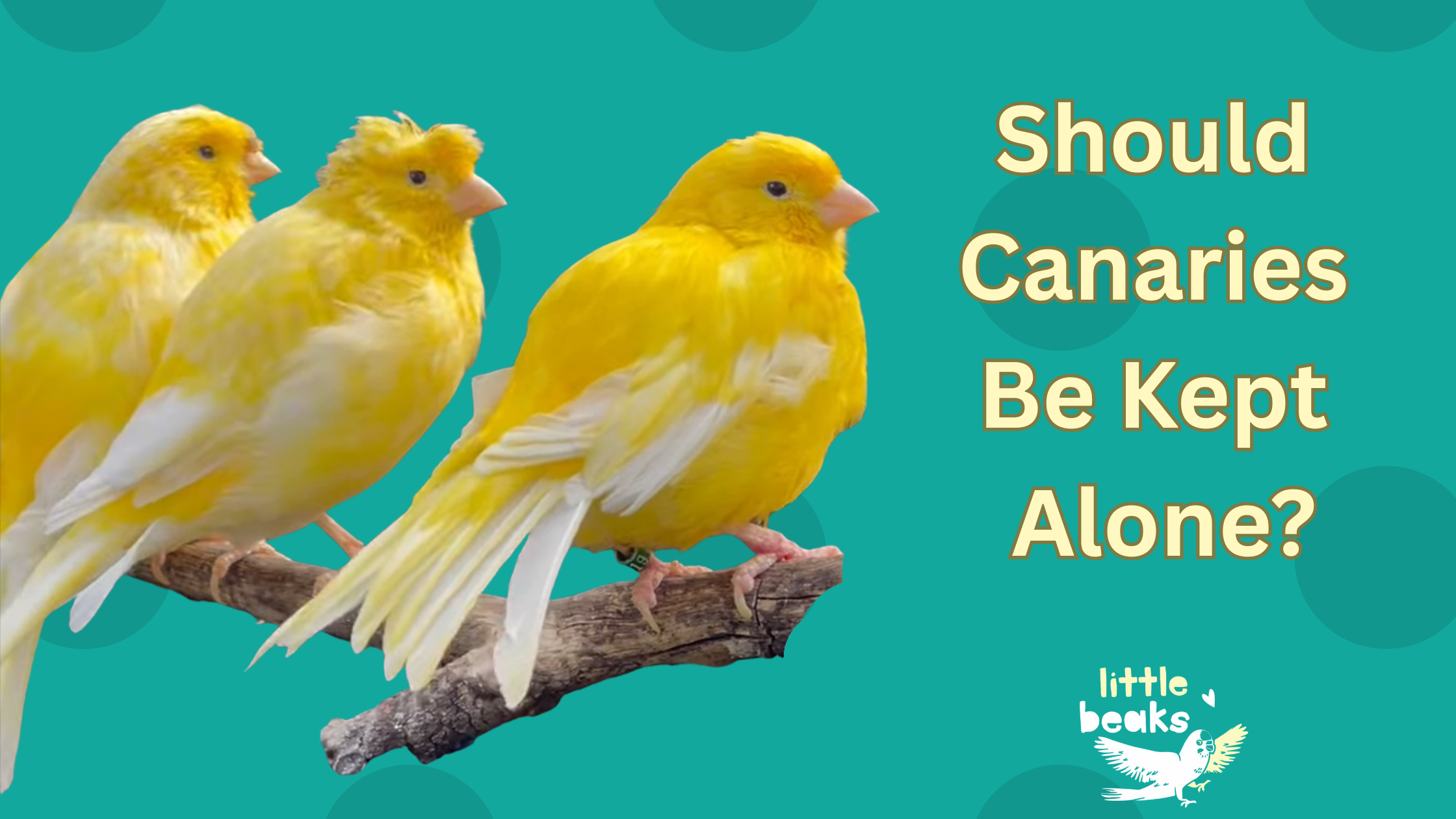Busting the Myth: “Canaries are solitary birds.”
You’ve probably heard it - maybe even from a breeder, pet shop, or book.
And it’s true that some canaries don’t want to cuddle or share perches. But does that mean they should live alone?
Let’s unpack the truth.
Where the Myth Came From
This belief stems largely from cage breeding practices and early European aviculture.
In the 17th–19th centuries, canaries were bred in captivity for song and appearance - especially in England and Germany. To preserve each male’s unique song (which could be sold for profit), breeders would intentionally isolate them, especially from other males. The more solitary the bird, the more ‘pure’ his song.
Over time, this practice filtered into the pet trade - and people began assuming canaries naturally wanted to be alone.
What’s Actually True
Canaries may appreciate flock life slightly differently to budgies and weiros, but they still groom each other and enjoy contact. In the wild, they live within hearing and sight of other birds. They forage, communicate, and breed near others.
Even if sometimes they don’t want to share a perch or nest, they are socially aware animals.
They gain comfort from having company nearby - even if it’s at a respectful distance.
Why It Matters
Believing that canaries “prefer to be alone” has led to:
Birds kept in full visual and auditory isolation
Misinterpretation of quietness as contentment
Emotional stress that goes unnoticed because it doesn’t look like “loneliness” in human terms
Owners thinking they’re “doing the right thing” by keeping canaries completely solo
Some birds do prefer their space. Others benefit from being surrounded by friends.
We’ve seen both at Little Beaks. What we've also seen is the response of previously solo birds, to their new flock.
That tells us everything.
What You Can Do Instead
✅ Don’t assume solitude is better - observe your bird and learn their preference
✅ Avoid forced pairing or crowding - especially in small spaces
✅ Let the bird guide what kind of social environment they prefer
Put Simply?
Canaries aren’t antisocial - they’re independent.
They might not be as attached at the hip as some other birds, but that doesn’t mean they want silence and isolation.
It’s not about forcing closeness - it’s about respecting their need for presence.

